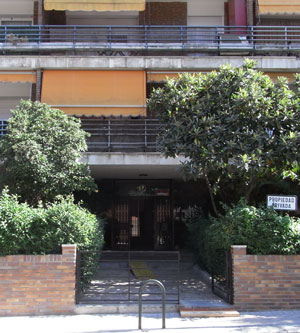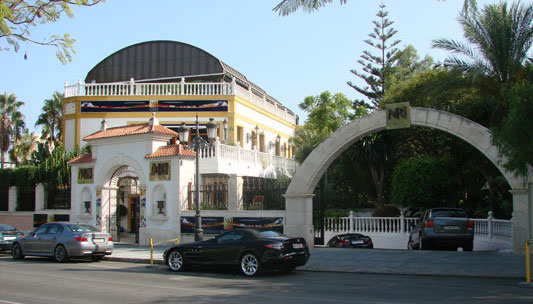Careful Who You Grant a Spanish Power of Attorney To
 Talking to a local Notary last week, he was bitterly complaining about the decision by the Supreme Court to eliminate the registry of revoked powers of attorney, after denying its validity. The reason for his tantrum was that a sale had been concluded by someone who had received a power of attorney (POA), who, in spite of knowing that he no longer had the authority to use it because it had been revoked and such revocation communicated to him, still decided to use it to his own advantage (most probably, to defraud). This, he says, would have been prevented had the Supreme Court not acceded to the petitions of nasty and envious land registrars (and a few notaries as well), who were behind the action.
Talking to a local Notary last week, he was bitterly complaining about the decision by the Supreme Court to eliminate the registry of revoked powers of attorney, after denying its validity. The reason for his tantrum was that a sale had been concluded by someone who had received a power of attorney (POA), who, in spite of knowing that he no longer had the authority to use it because it had been revoked and such revocation communicated to him, still decided to use it to his own advantage (most probably, to defraud). This, he says, would have been prevented had the Supreme Court not acceded to the petitions of nasty and envious land registrars (and a few notaries as well), who were behind the action.
The Supreme Court ruling (full text in Spanish), which is more than two years old, but whose consequences are emerging now, is yet another example of a traditional power struggle between notaries and property registrars (defined once as “centenary parasiting casts”), that has dented the protection our notarial system has traditionally offered to people dealing with, particularly, property, via the Notarial Archive of Revoked Powers of Attorney.
The above ruling is counterproductive because it has banned the use of a registry (or archive) notaries had come up with, in essence, to keep a record of powers of attorney that had been revoked by the grantors, because they did either not trust the beneficiary, or did not wish to keep them valid indefinitely. Now the powers can still be revoked but no longer is the notary able to consult a nationwide registry to find out if a power of attorney have been revoked (at one point, there were 130,000 revocations recorded in it!).
The problem is that now, even if you give a power of attorney, you have to rely on the honesty of its recipients, because, unless you physically remove it from them (and ensure they cannot get a copy) you can never be sure that it will not be used. It is therefore important that powers of attorney, other than to trusted family members, are only given to reputable professionals that are registered with a professional school.
If the above is not possible, try to:
- Limit the scope of a power of attorney to specific assets.
- Avoid giving powers of attorney to sell property unless you have substantial trust in the recipient.
- If the power of attorney is not going to be used again, have it revoked at a Notary Public, who will then notify the beneficiaries.
Lately, a new fraud consisting on giving out powers of attorney by falsifying identity documents has been detected. The perpetrators, who have access to personal details from, for example, a rental agreement, forge the identity document or passport and sell the property. This happened to a rich Arab in Marbella, who, to his shock, found out that someone had sold his plots with a power of attorney forged in Holland. One of the buyers happened to be a high planning official in Marbella, who is indicted on charges of alleged fraud.
Unfortunately, here one has to rely largely in the police forces and to a lesser extent, in notary publics, who should only accept powers of attorney to sell given to known-to-them lawyers, or attorneys, as the name of the document indicates.


 Surfing the web in search for information on the so-called equity-release fiascos, I came accross a very interesting article in respect of
Surfing the web in search for information on the so-called equity-release fiascos, I came accross a very interesting article in respect of 
 THE FACUA (Spanish Consumers Association) recently issued an official statement warning there was still little Government control over how timeshare in Spain was being sold, in spite of the existence of a law to the effect.
THE FACUA (Spanish Consumers Association) recently issued an official statement warning there was still little Government control over how timeshare in Spain was being sold, in spite of the existence of a law to the effect.
